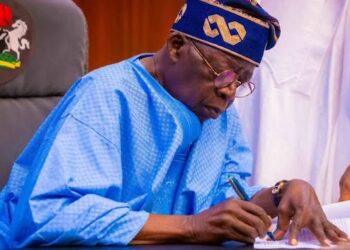Nigeria has secured a $600m loan from the African Development Bank for budget support, the first breakthrough for the cash-strapped government in 10 months of efforts to borrow abroad to plug its budget deficit.
Perhaps more than any other commodities-exporting nation in Africa, Nigeria is reeling from the impact of low oil prices, writes Maggie Fick in Lagos. It is headed for its first full-year recession in more than 20 years, and is facing calls from the IMF and World Bank to push through further reforms.
The FT reported last month that these discussions have held up any agreement on a loan from World Bank — now seen as not possible until next year.
The ADB loan is part of a total $1bn in budget support, the rest of which will be disbursed early next year if reforms are implemented, the bank said in a statement. The funds “will assist the country’s efforts to quickly build a buffer of foreign exchange reserves, which would contribute to easing pressure on the foreign exchange market and stabilizing the naira.”
Nigeria has been trying for months to borrow externally to implement the $30.6bn budget for 2016, its largest ever, because it wants to spend heavily on infrastructure projects to revive the economy.
The ADB board’s sign-off on the first tranche came after the bank’s president, Akinwumi Adesina, pledged last month to seek approval for a loan.
He said in a statement on Wednesday.











